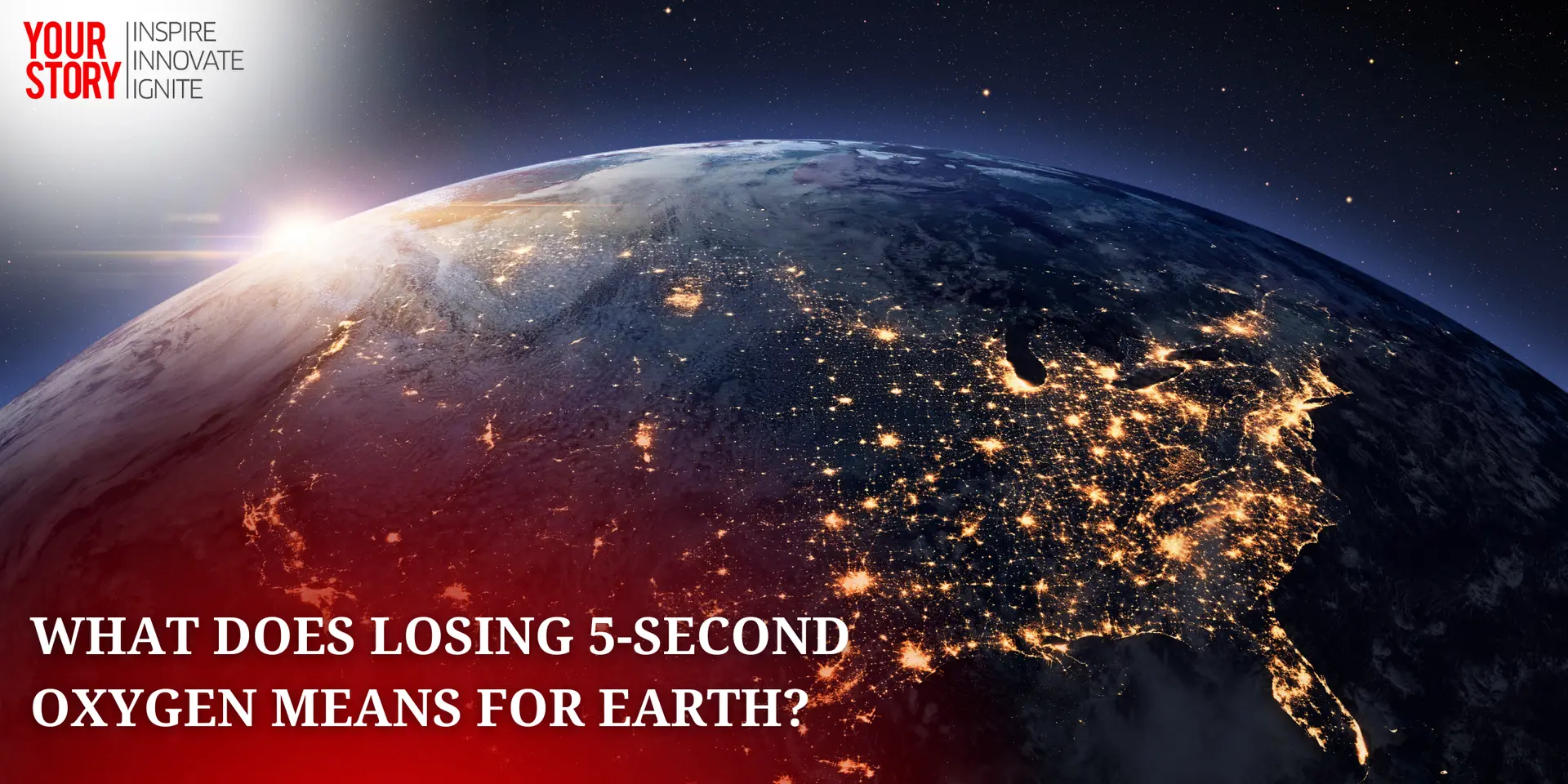What Does Losing 5-Second Oxygen Means for Earth?
Though losing oxygen for 5 seconds might not end life on Earth, it underscores the delicate balance of our planet's atmosphere and the importance of preserving it.
What if Earth suddenly lost its oxygen for just 5 seconds? It sounds like a short time, but even this brief interruption could have surprising effects on our planet and daily life. This concept might seem far-fetched, but exploring it helps us appreciate the vital role oxygen plays in sustaining life and maintaining the Earth's balance. Let's look at what would happen in those 5 seconds and why oxygen is so crucial for us and our planet.
Breathing: The Least of Our Worries
Interestingly, the immediate loss of oxygen wouldn't halt our breathing. Our bodies have enough oxygen in the bloodstream and lungs to manage for a short period. However, the world around us would undergo catastrophic changes. In just those few seconds, the face of the Earth would be irrevocably altered.

Structural Damage
Oxygen is a key component of many materials, including concrete and metals. A sudden absence would weaken the molecular bonds in these materials, causing buildings, bridges, and other infrastructures to suffer structural failures. Acting as a binder in concrete, oxygen's sudden absence would reduce these structures to dust. The world's skylines and architectural wonders would instantly collapse, showcasing the fundamental role oxygen plays in our built environment.
A World Fused Together
The disappearance of oxygen would also lead to an unexpected phenomenon involving metals. Typically, metals don't weld together because they're separated by a thin layer of oxidation. Without oxygen, this protective barrier would vanish, causing untreated metals to bind instantly. The implications for buildings, vehicles, and even everyday tools would be profound, as metal structures fuse and become unusable.
The Sky Darkens
One of the most visually striking effects would be the complete darkness enveloping the sky. Light from the Sun scatters in the air, bouncing off particles that include oxygen molecules. Remove oxygen, and the atmosphere becomes less capable of scattering sunlight, pushing the world into darkness for those 5 seconds.

The Earth's Crust Disintegrates
Perhaps the most alarming consequence would be the destabilisation of Earth's crust, composed of 45% oxygen. Without it, the crust would start to crumble, threatening the very ground we stand on. This catastrophic disintegration would send everything and everyone into a chaotic state, highlighting the planet's fragility in the absence of oxygen.
Immediate Danger to Human Health
The consequences wouldn't stop there. Without oxygen, not only would we lose 21% of our air pressure, leading to the potential explosion of our inner ears due to rapid pressure changes, but we'd also lose protection against the sun's UV rays. The ozone layer, which shields us from the sun's harmful ultraviolet (UV) rays, is primarily composed of oxygen molecules. Without this crucial protection, a mere 5 seconds of exposure would result in severe sunburn for anyone outdoors, or would increase the risk of other health issues related to UV exposure.
A Halt to Combustion and Transport
The disappearance of oxygen means the end of fire and the combustion process that powers most of our vehicles. Our modes of transportation would grind to a halt. Vehicles relying on gasoline or diesel fuel would instantly cease to function. Planes would fall from the sky, and cars would come to a complete stop.
Thankfully, such a scenario is purely hypothetical. Oxygen not only enables life but also supports the Earth's ecological and atmospheric systems. It's a key player in water cycles, climate regulation, and even in the erosion processes that shape our planet's surface.
Though losing oxygen for 5 seconds might not end life on Earth, it underscores the delicate balance of our planet's atmosphere and the importance of preserving it. It highlights how vital oxygen is for life, infrastructure, and the environment. Such a thought experiment reminds us to appreciate and protect the air we breathe, understanding its central role in our survival and the well-being of our planet.
Edited by Roshni Manghnani



